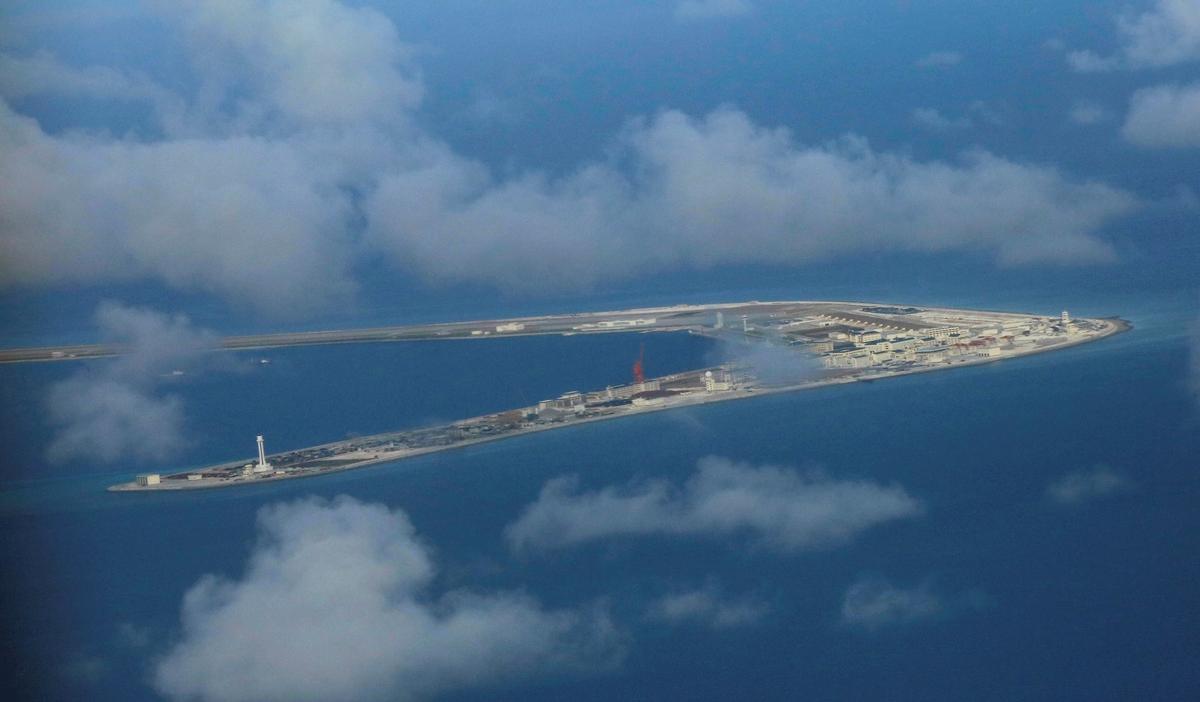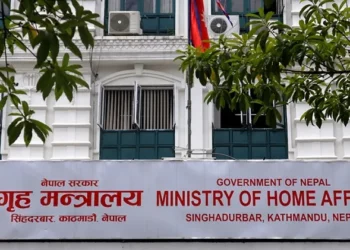KUALA LUMPUR: Malaysia has rejected Beijing’s expansive maritime claims in the South China Sea, a region where Beijing’s territorial claims have aggravated tensions.
“Malaysia opposes China’s claim that they have historic rights over those waters,” Malaysian Foreign Minister Hishammuddin Hussein told the Parliament in a rare public rebuke of its largest trading partner.
“The Malaysian government also considers China’s claims over maritime features in the South China Sea to have no basis whatsoever under international law,” he added while answering questions from Members of Parliament on the status of China’s demands for territory in the South China Sea.
This is an unusual move for Malaysia, which in the past had avoided reproaching China openly by reiterating its focus on ensuring the area remains open for trade.
A recent Malaysian government report disclosed the Chinese ships incursions into Malaysia’s exclusive economic zone had taken place 89 times between 2016 and 2019. In April, Chinese ships have intruded into the Malaysian waters for over 100 days.
A Chinese government survey vessel, the Haiyang Dizhi 8, accompanied by a Chinese Coast Guard (CCG) vessel, entered Malaysia’s exclusive economic zone (EEZ) and began a survey close to a drillship under contract to Malaysian state oil company Petronas. Foreign Minister disclosed that after “intensive diplomatic efforts”, the Chinese Coast Guard and fishing militia retreated its exclusive economic zone in May.
Malaysia and Brunei are two of the four Southeast Asian states opposing Beijing’s expansive claims in the South China Sea, through which USD 3.4 trillion worth of international shipping trade passes every year.
But unlike Vietnam and the Philippines, they have made few public statements on the issue, even as Beijing built artificial islands and sent coastguard and research vessels to the resource-rich area to strengthen its claims.
On December 12 last year, Malaysia filed a submission with the United Nations, seeking to establish the limits of Malaysia’s continental shelf in the northern part of the disputed area.
Under the UN Convention on the Law of the Sea, any country can claim an exclusive economic zone up to 200 nautical miles from their shoreline.
China, however, claims most of the South China Sea. Malaysia said in its submission that there were areas of potential overlapping claims beyond its own exclusive economic zone.
China objected to the filing, saying Malaysia’s submission had “seriously infringed on China’s sovereignty, sovereign rights and jurisdiction in the South China Sea”.
In response, the Malaysian government issued a note verbale to the UN on July 29 saying that it rejected “China’s claims to historic rights, or other sovereign rights or jurisdiction, with respect to the maritime areas of the South China Sea encompassed by the relevant part of the ‘nine-dash line’.”
A note verbale is submitted to the UN Secretary-General with the request that it is sent to other member states.
Malaysia’s note added that China’s claim in the disputed area “has no basis under international law” and it “rejects in its entirety the content” of China’s objection.
In April, Malaysian Foreign Minister Hishammuddin Hussein called for calm in the South China Sea and reaffirmed Malaysia’s commitment to peace in the disputed waters.
This came after reports that a Chinese government survey ship was “tagging” an exploration vessel operated by Malaysia’s state oil company Petronas in the South China Sea.
China claims much of the South China Sea, but there are also overlapping claims by Brunei, Malaysia, the Philippines, Taiwan, and Vietnam.
China has built bases and other outposts on shoals, reefs and rock outcroppings to deepen its claim over 80 per cent of the 3.6 sq km waterway, with Vietnam, the Philippines, Brunei, Malaysia and Taiwan claim parts of the same area.
The US and its allies have also challenged Beijing’s territorial claims.
Washington has called on Beijing to stop bullying tactics in the South China Sea and accused the latter of pushing its presence in the disputed waters while other claimants are pre-occupied with battling COVID-19.
Malaysia will remain cautious in defending its claim to avoid escalating tensions, Hishammuddin said.
It will keep working toward a resolution within regional grouping ASEAN, which is holding discussions with China for a code of conduct for the area, even as talks have stalled due to the pandemic, Hussein added. (ANI)









Comment